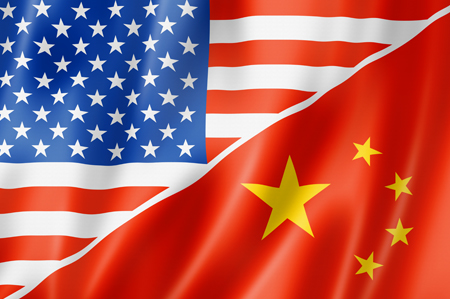The Trade War Talks Takeaway: Chinese and US Officials Agree on Lunch but are no Closer to Deal
Category: Trade

Three brown bags from Clyde’s were carried into the Office of the United States Trade Representative from a black SUV on Thursday. According to its website, the chain serves “classic American food” and uses local and farm-grown ingredients for dishes that include steaks and burgers.
Treasury Secretary Steven Mnuchin, Lighthizer and Liu worked through an eight-hour meeting, and the vice-premier was seen smiling as he left for the day at around 5.30pm.
US President Donald Trump said he would meet Liu at the White House on Friday.
This is not the first time delegates in talks to end the 15 month-long trade war have tried to bridge differences through food, a custom described by the Chinese side as a way of expressing goodwill and a desire for common ground.
At talks in Washington in March, both sides ordered food they considered to be representative of the other’s culture.
Liu had a hamburger, and Lighthizer had stir-fried chicken with aubergine, according to Chinese vice-commerce minister Wang Shouwen, then a member of the Chinese delegation.
“Neither of them had coffee or tea, but drank boiled water. You have to look for common ground,” Wang said.
Despite the “food diplomacy”, trade talks collapsed in May as the US accused China of backtracking on its commitments, while China criticised the US for making excessive demands.
Talks resumed in July, when the US negotiators returned to Shanghai. These stalled when Trump called China a currency manipulator and announced more tariffs on most Chinese products shipped to the US.
Tariffs on US$250 billion worth of Chinese goods are set to increase from 25 to 30 per cent on Tuesday, while duties of 15 per cent on US$160 billion of largely consumer products will take effect on December 15.
Liu arrived in the US capital on Tuesday as tensions hit their highest level since the trade war began in July 2018.
Both sides hoped to formalise a currency pact and purchases of agricultural products by China as part of an early harvest deal that could mean a suspension of next week’s tariff increases.
This week, Trump urged China to handle the unrest in Hong Kong in a “peaceful” and “humane” manner, warning that trade talks could be affected if anything “bad” happened to demonstrators.
At the same time, Chinese state media hit out at Apple and the US National Basketball Association in relation to protests in Hong Kong.
In response, Apple removed an app that allowed protesters in Hong Kong to track police, while the NBA’s Chinese partners suspended cooperation with the association after an NBA general manager tweeted in support of anti-government protests.
Also this week, the US government blacklisted 28 Chinese entities and announced sanctions, including visa controls, on Chinese officials, citing human rights concerns in western Xinjiang Uygur autonomous region.

